Certificate in Servant Enrichment
Overview
The Certificate in Servant Enrichment is a short-term graduate program focused on enriching the knowledge base of those serving Eastern Christian communities. The program provides students customizable training through a formative set of course offerings in Eastern Christian studies appropriate to educators, church or parachurch ministries, and personal enrichment.
Outcomes
The Certificate in Servant Enrichment program outcomes are intended to prepare students to:
- Recall a basic knowledge and matters important to the history, culture, and theology of early and Eastern Christianity.
- Explain ideas and concepts pertinent to Orthodox Christianity.
- Utilize research methods and theoretical frameworks rooted in Eastern Christian Studies for engaging contemporary paradigms.
- Think theologically and critically about the Orthodox Christian tradition both historically and within contemporary church and society.
- Construct and defend a position rooted in Orthodox Christian tradition.
- Produce new and original work articulating a holistic understanding of Orthodox Christianity.
Required Courses
Introduction to Theology and Methodology
This course explores an introductory discussion of the nature of theology. The aim of this course is to highlight the two-fold nature of theology both as an encounter of the human soul/heart and an expression of the human mind. Basic and fundamental themes and concepts of Orthodox theology will be discussed. Various sources, resources, and methodologies will be discussed to show the inner – coherence of theological loci and their relevance to everyday life.
Pastoral Theology and Spirituality
The purpose of this course is to help the student understand the basics of pastoral care, with an emphasis on “foundations,” covering both theories and types of personalities and various methods in pastoral care. It will also help the student to discern the most important elements of the Spiritual life in the Eastern Christian experience. The course will highlight the importance of prayer and encounter as a key to theology and the different aspects of spiritual life.
Elective Courses
The courses listed here are indicative, and there is no guarantee that they will run for the current academic year. Students will take the courses in the order they are made available.
One Elective Course in History from the List
Oriental Church History: The Alexandrian Church I
The aim of this class is for students to explore the marginalized voice of the Oriental Orthodox tradition, to get to know it on its own terms, and to refine this voice in its engagement with disciplinary discourse. The course will focus on the history of the Alexandrian Church and its legacy in Egypt, from the apostolic era of St. Mark until the Ottoman period. The class is designed for students to be able to understand and analyze the multi-faceted factors that shape the current Christian ecumenical dialogue today by looking back into the history of the most ancient native Christian traditions. It will provide students with the tools to aid their study of Oriental Orthodox Church history-students are the ultimate drivers of their education and are given free rein to pursue and research whichever topic piques interest.
Oriental Church History: The Alexandrian Church II
The aim of this class is for students to explore the marginalized voice of the Oriental Orthodox tradition, to get to know it on its own terms, and to refine this voice in its engagement with disciplinary discourse. The course will focus on the history of the Alexandrian Church and its legacy in Egypt, from the end of the Ottoman period unto the present day. The class is designed for students to be able to understand and analyze the multi-faceted factors that shape the current Christian ecumenical dialogue today by looking back into the history of the most ancient native Christian traditions. It will provide students with the tools to aid their study of Oriental Orthodox Church history-students are the ultimate drivers of their education and are given free rein to pursue and research whichever topic piques interest.
Church History II: The Oriental Church
Council of Chalcedon to the present day by tracing key historical events and themes to gain a better understanding of the Oriental Orthodox Christian tradition and its legacy in the Middle Eastern religious mosaic. The examination of this trajectory provides an opportunity to delve into the Oriental Orthodox viewpoint of Christian history. Participants analyze historical themes in order to strengthen their knowledge of and develop an appreciation for this tradition.
History of Ethiopic Christianity
The course will focus on the history of the Church in Ethiopia and Eritrea from its inception until the present day. As an important part of this class, students will learn about the multifaceted landscape of Christianity in the Horn of Africa. Students will study the major figures and events that shaped the Tewahedo Church in its various locales, languages, and cultures. Special attention will be given to the roles of Syriac and Coptic churches in the formation of Tewahedo Christianity. Students will wrestle with the challenges related to the Church in the Horn of Africa as it struggles with recent political persecution.
History of Nubian Christianity
The course will focus on the history of the Church in Nubia from its inception until the present day. As an important part of this class, students will learn about the unique cultures of the historical kingdoms in the Sudan. Students will study the major figures and events that shaped the Nubian Church. Special attention will be given to the roles of the Church of Alexandria in the formation of Nubian Christianity. Students will wrestle with the challenges related to documentation of the Church in Nubia and its eventual, albeit recent decline four centuries ago.
One Elective Course from the List
The Theology of Mission
This course explores the theological evolution of Christian Mission with particular emphasis on Orthodox theology of mission. It provides an account of multiple ranges of biblical, theological, and liturgical perspectives of the theology of mission. By analyzing the works of Orthodox mission theologians, the course explains the relevance of the Orthodox mission theology in today’s global and local contexts. It furnishes relevant missional narratives from various historical contexts for illustrating the Orthodox mission practices. The course also examines the salient features of mission theology in other Christian traditions to encourage a more comprehensive understanding of the theology of Orthodox Christian mission.
Patristics: Greek, Latin and Syriac Fathers
This course surveys the Church Fathers of the East and the West. Despite the emphasis of the course on the Fathers who wrote in Greek and Latin, it will touch on the Fathers who wrote on other languages like Syriac, Coptic, and Arabic. This Course also introduces the student to the historical context of the various Church Fathers. It also aims to give biographic information about those Fathers, their writings, how their thoughts were shaped, and what contributed to their formation. It then explores the literature of the various Fathers, the specific characteristics of each of them, and the contribution of the literature on the overall Christian thought that was preserved by the Church. Introducing the Patristic literature would require us to be introduced to the heretical teachings that urged the Fathers to confront them by their orthodox teachings.
Liturgical Theology: Sanctification of Life
Here the student is introduced to the subject of Liturgical theology, Liturgical science and traditions. The readings emphasize the integral character of Baptism, Chrismation, and Eucharist constituting together the beginning of the Christian life. Also, it emphasizes the understanding of sacrament or mystery as an action of the Church, rather than a “private” rite. The course also focuses on the sacraments of penance, unction, marriage, and holy orders as well as on the liturgical services of Vespers, Matins, and the Eucharistic liturgy. It focuses on how the prayer of the Church transfigures the life of the Christian.
Church, Culture, and Tradition
Church, Culture, and Tradition is a 3-credit module, which aims to investigate the meaning of the Church and its diverse expressions through a study of ecclesiology, Tradition and culture. The module will start by defining the term ‘Tradition’ followed by an overview of the true identity of the Church and its expression within different contexts throughout history. The module will then discuss our contemporary context and the appropriate ways of engaging with a theology of incultration by incarnating in a multi-cultural and pluralistic society.
Sample Certificate Study Plan
| Term 1 – Fall | Term 2 – Spring | Term 3 – Summer |
|---|---|---|
| Required Course 1 | Elective 1 | Elective 2 |
| Required Course 2 |
Students' Life-Changing Experiences
See why Orthodox education at this pioneering university is so valuable for life after graduation.
Studying at HTC helped me to perceive the church as a living body of Christ and taught me how to embrace that, and to look at every member of the church as a true member and the one I have to love.



